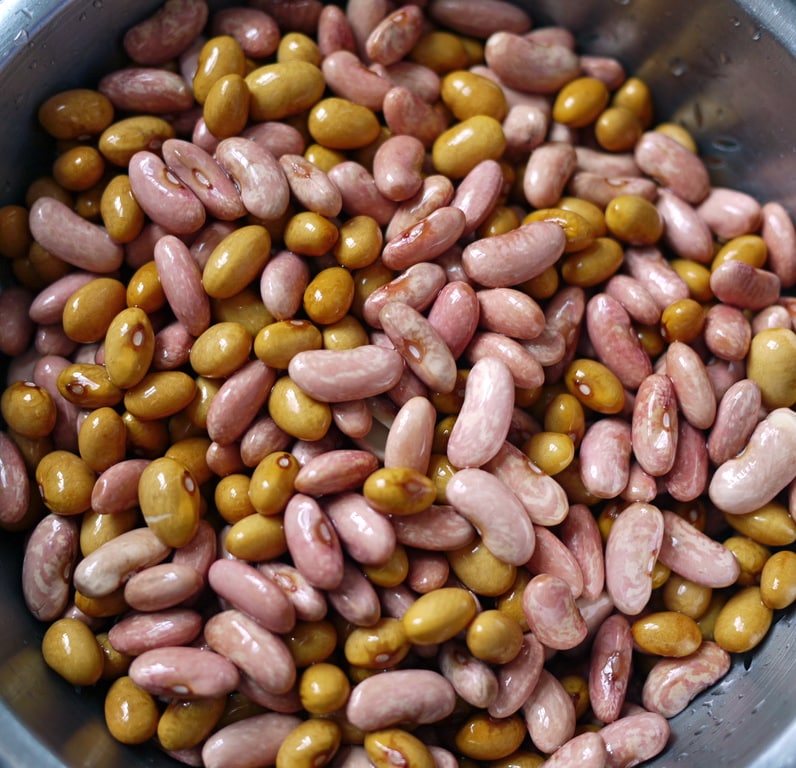Beans straddle both the protein and the vegetable food groups. They’re loaded with protein, iron, and zinc, as you might expect from other protein sources like meat, but legumes also contain nutrients that are concentrated in the vegetable kingdom, including fiber, folate, and potassium. You get the best of both worlds with beans, all the while enjoying foods that are naturally low in saturated fat and sodium and free of cholesterol.
How Much Baking Soda Do You Add To Beans To Prevent Gas?
Research dating back more than 25 years (“Effect of Processing on Flatus-Producing Factors in Legumes“) found that adding baking soda to the soak water of dried beans before cooking (about 1/16 teaspoon per quart) significantly decreases the content of the raffinose family of sugars.
Why Do Beans Cause Flatulence?
As I discuss in the article Beans and Gas: Clearing the Air, the main source of gas is the normal bacterial fermentation in our colon of undigested sugars.
Beans have been christened the musical fruit, but a randomized controlled crossover study published last week, “Perceptions of flatulence from bean consumption among adults in 3 feeding studies,” concluded “People’s concerns about excessive flatulence from eating beans may be exaggerated.”
During the first week, 35% reported increased flatulence but that fell to 15% by week three, 5% by week five, and 3% by week eight. Long-term, most people bulking up on high-fiber foods do not appear to have significantly increased problems with gas.
In the beginning, though, “A little bit of extra flatulence,” reads the Harvard Health Letter, “could be an indication that you’re eating the way you should!” The buoyancy of floating stools from trapped gasses can in fact be seen as a sign of adequate fiber intake. The indigestible sugars in beans that make it down to our colon may even function as prebiotics to feed our good bacteria and make for a healthier colon.
We should all try to get three servings a day. A serving is defined as a quarter cup of hummus or bean dip; a half cup of cooked beans, split peas, lentils, tofu, or tempeh; or a full cup of fresh peas or sprouted lentils. Check out our Black Bean Burger and Unfried Refried Beans recipes for some ideas.
